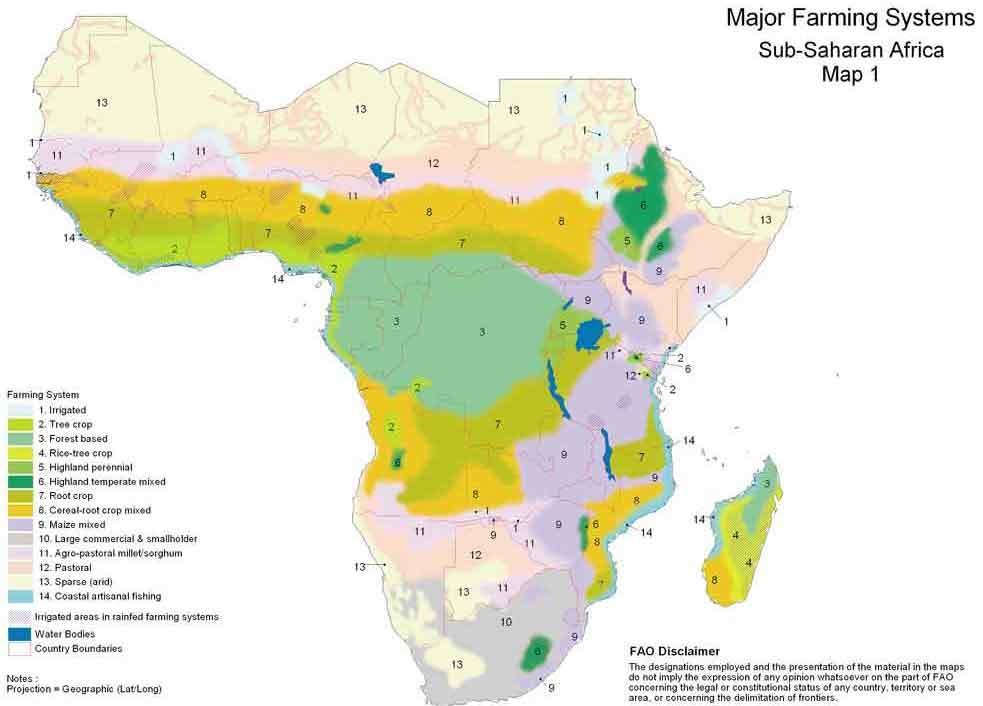70% of Africans make a living through agriculture, and technology could transform their world

Image: REUTERS/Mike Hutchings

Get involved with our crowdsourced digital platform to deliver impact at scale
Stay up to date:
Africa
As leaders gather in Kigali for the Forum’s Africa meeting, the continent’s economic growth is once again top-of-mind. And if we are going to talk about economic growth, we must talk about agriculture.
With 70% of Africans dependent on agriculture for livelihoods, the sector is critical to the economies of all African countries. As a sector its growth is central to increasing prosperity, food security, industrialization, intra-African trade and to bolstering Africa’s contribution to global trade.

Governments, donors and private organizations all recognize the importance and potential of agriculture in building sustainable, inclusive economies. With continued investment, smallholder farmers can improve their livelihoods and experience the direct effects of this growth. Such investments stand to have the most profound impact if directed towards technology.
Technology is not just about ICT or mobile access, but frankly any tool that makes work or life easier, and makes us better informed – after all, even the wheel was a game changer in its day. Mobile technology on the continent is already having a positive impact on smallholder’s livelihoods: cell phones allow them to carry out business without mediators, open bank accounts only they can access, receive market and trade information, and access agriculture extension services and training that governments may no longer provide.
Yet when it comes to introducing technology to their planting, harvesting and storage practices, many farmers stick to the traditional approaches passed down through generations. Sometimes it’s a simple lack of awareness that prevents a change. Whatever the cause, the gap between what farmers have and what they could be using to dramatically improve their livelihoods is persistent – but not insurmountable.
Let’s look at Tanzania, where the past 12 months yielded a bumper crop of maize. Safe storage was in great demand to keep the harvest in good condition so that it could be sold over time, free of rot or pests.
Last year, the Alliance for a Green Revolution in Africa (AGRA), with support from The Rockefeller Foundation’s agronomist expertise, trained 2,000 farmers – who had grown 1,425 metric tons of cereal – on different techniques for reducing post-harvest loss. They focused on simple storage technologies, including hermetic cocoons and bags, metal silos, and polypropylene storage bags. This February, they unveiled the maize that had been stored for six months using these technologies – and all were in good condition. The much welcome outcome translates to more sales and greater incomes for the farmers, and better nutrition for their families and communities.
In other words, technologies – even simple ones like metal cocoons – stand to dramatically alter the future for farmers on the continent. Notably, prior to the AGRA training, more than 50% of the farmers they reached used sacks to store grain, or had no storage at all. Others used plastic containers, or custom-made mud-walled structures, baskets and other traditional methods, all leading to a 30-40% loss of their stored grain. Eliminate those losses, and you change the game.
So what’s next? We can get these simple technologies to more farmers is we can invest more in local fabrication, coupled with better distribution. Which is where the private sector has a very important role to play.
Smallholder farmers are the backbone of the sector. When they have what they need to make their hard work pay off, we are all better off, because we will be able to feed the continent sustainably for posterity. The power of technology in farmers’ hands will yield countless dividends. It is up to us to ensure farmers know about them and can afford to use them.
This article is part of our Africa series. You can read more here.
The World Economic Forum on Africa is taking place in Kigali, Rwanda from 11 to 13 May.
Don't miss any update on this topic
Create a free account and access your personalized content collection with our latest publications and analyses.
License and Republishing
World Economic Forum articles may be republished in accordance with the Creative Commons Attribution-NonCommercial-NoDerivatives 4.0 International Public License, and in accordance with our Terms of Use.
The views expressed in this article are those of the author alone and not the World Economic Forum.
The Agenda Weekly
A weekly update of the most important issues driving the global agenda
You can unsubscribe at any time using the link in our emails. For more details, review our privacy policy.
More on AfricaSee all
Libby George
April 19, 2024
Efrem Garlando
April 16, 2024
Babajide Oluwase
April 15, 2024
Eliza L. Swedenborg
April 3, 2024
Christiane Zarfl and Rebecca Peters
March 27, 2024






